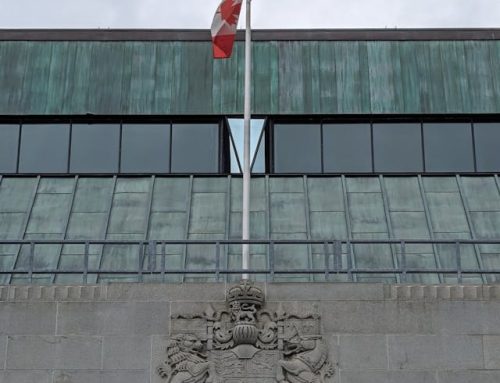CRA Voluntary Disclosure Program Reviewed
4053893 Canada Inc. v. Canada (National Revenue) 2021 FC 218
Tax Case Summary
4053893 Canada Inc. (“405”) applied for a second judicial review of the Minister’s decision to refuse acceptance of a voluntary disclosure application on the basis that it was not voluntary. The application was dismissed with costs to the Crown.
CRA VDP Background
405 initially sought judicial review of the Minister’s denial to grant relief under the CRA’s voluntary disclosure program (“VDP”).[1] 405 is owned by Brent Harris. Mr. Harris had not filed personal tax returns for the period 2006-2015. The CRA wrote to Mr. Harris in August of 2016 to notify him of his obligation to file his personal and business returns. 405 had not filed T2 returns since 2003.
In January 2017, 405’s representative filed a no-names voluntary disclosure letter with the CRA. The CRA acknowledged receipt of the written disclosure and indicated January 17, 2017 as the effective date of disclosure. The CRA also indicated that it would not make a determination as to the disclosure’s voluntariness or its completeness until the party was revealed. 405 disclosed itself as the unnamed person in May 2017.
A delegate of the Minister denied the VDP request on the basis that it had not been voluntary. The VDP was not considered voluntary because the CRA had, in the delegate’s view, contacted 405 before the disclosure date for the same matter.
405 requested a second-level review, on the basis that the first level review lacked detail regarding the purported contact and alleged that there had been no contact between 405 and the CRA before January 17, 2017, the effective date of disclosure.
The second level reviewer also denied the request, on the basis that the disclosure was not voluntary, as contemplated by Information Circular IC00-1R5. It was not voluntary because a phone call between the CRA and Mr. Harris had taken place where the CRA had notified of his obligation to file both T1 and T2 returns. 405 sought judicial review of this decision.
Relevant Legal Framework
The IC00-1R5 lists four requisite conditions of a valid disclosure. The disclosure must be:
- a) voluntary;
b) complete;
c) involve a penalty; and
d) include information that is at least one year past due.
A disclosure will not be considered voluntary, and will thus not meet the first condition above, if the taxpayer has knowledge of any enforcement action to be conducted by the CRA in respect of the disclosure or where enforcement action has been initiated by the CRA against another party associated with the disclosing taxpayer and that action would uncover the information being disclosed.
The only issue before the Federal Court in first instance was whether the Minister’s denial of the disclosure could be considered reasonable.
Applicant’s Position
405 was of the view that the Minister had denied the VDP request on the basis that its enforcement action against Mr. Harris personally would have uncovered the information disclosed by 405 in its disclosure. The Respondent argued that the delegate’s decision was reasonable on the basis that it relied on numerous prior enforcement actions against Mr. Harris, the 2016 letter to Mr. Harris by the CRA informing him of his obligations to file and various phone calls between the CRA and Mr. Harris regarding his personal returns.
The Court relied on the reasoning in Worsfold v. Canada,[2] in which the Court held that it is insufficient to simply conclude on the basis of an existing relationship that enforcement action against one taxpayer would uncover information contained in a second taxpayer’s voluntary disclosure. The Court found that in this case, the decision in dispute was sparse in its support for the conclusion that enforcement action against Mr. Harris would necessarily uncover the information disclosed by 405. The respondent’s submissions “…to the effect that the Delegate could reasonably conclude, based on Mr. Harris’s role as the sole owner, director, and employee of the applicant alone, that the applicant’s information would have been uncovered in the course of the enforcement action against Mr. Harris is inadequate. Simply looking at the relationship between the parties is insufficient (Worsfold at para 123).”[3]
The Court granted the application for judicial review and the matter was returned for redetermination by a different decision-maker, and 405 was awarded its costs.
On redetermination, the Minister again refused the Applicant’s request. 405 then applied for judicial review a second time.
Decision & Analysis
In refusing the Applicant’s request for redetermination, the Minister cited several enforcement letters and internal CRA notes indicating that Mr. Harris had been advised of tax filing obligations for himself and those of 405 over the telephone. The Federal Court found that the telephone call amounted to ‘enforcement action’, and that 405’s tax obligations had been discussed as part of that enforcement action. The Court concluded that based on the facts before it, the VDP application was not voluntary. The judge thus found the Minister’s decision to be reasonable and dismissed the application for judicial review.
[1] 4053893 Canada Inc v Canada (National Revenue) 2019 FC 51 (“405 2019”).
[2] Worsfold v. Canada (Minister of National Revenue) 2012 FC 644.
[3] 405 2019, at para. 22.



